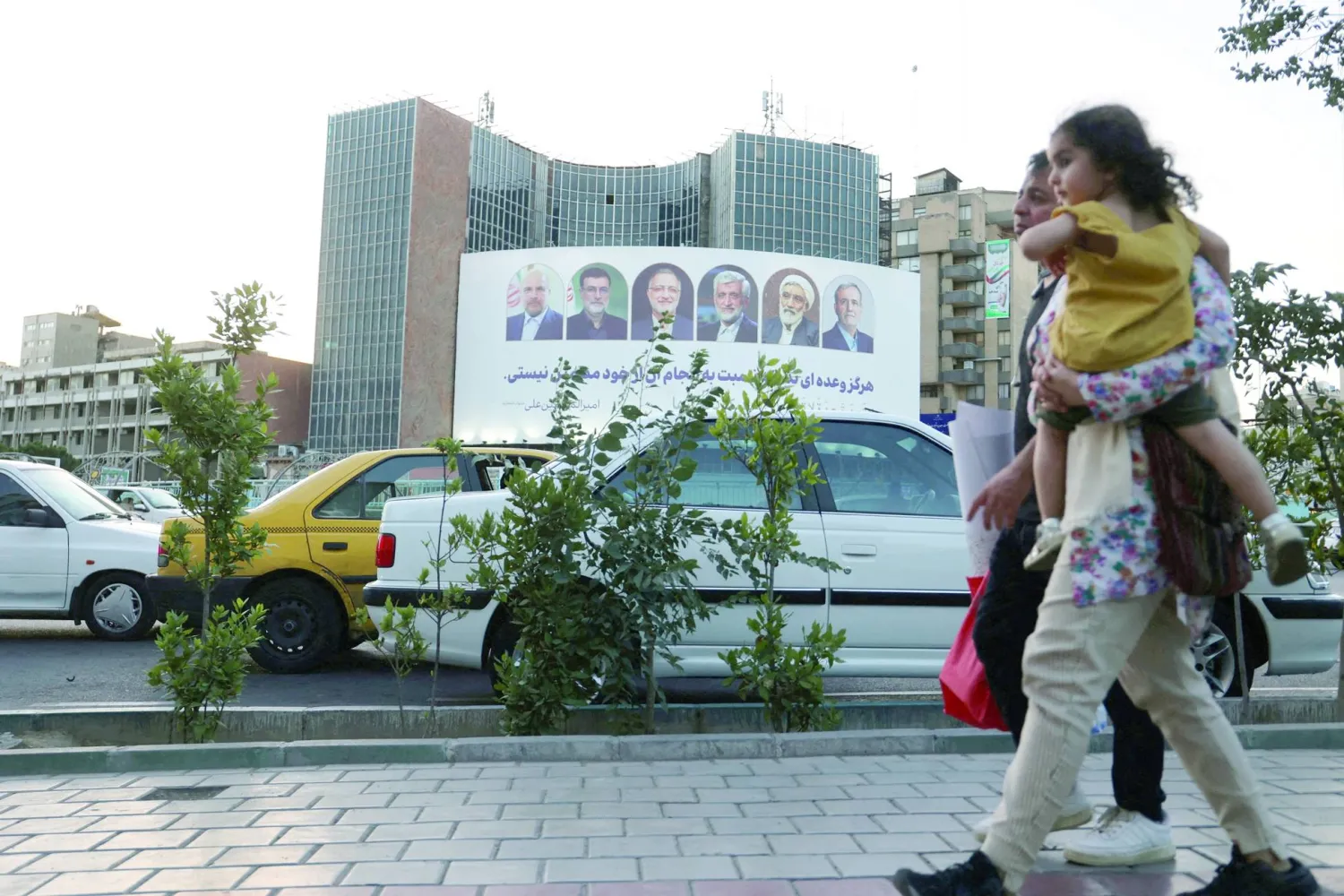Iranians were voting Friday in a snap election to replace the late President Ebrahim Raisi, killed in a helicopter crash last month, as public apathy has become pervasive in Iran after years of economic woes, mass protests and tensions in the Middle East.
Voters face a choice between hard-line candidates and a little-known politician who belongs to Iran's reformist movement that seeks to change its Shiite theocracy from within. As has been the case since the 1979 Iranian Revolution, women and those calling for radical change have been barred from the ballot while the vote itself will have no oversight from internationally recognized monitors, The Associated Press said.
The voting comes as wider tensions have gripped the Middle East over the Israel-Hamas war in the Gaza Strip. In April, Iran launched its first-ever direct attack on Israel over the war in Gaza, while militia groups that Tehran arms in the region — such as the Lebanese Hezbollah and Yemen's Houthi extremists— are engaged in the fighting and have escalated their attacks.
Meanwhile, Iran continues to enrich uranium at near weapons-grade levels and maintains a stockpile large enough to build — should it choose to do so — several nuclear weapons.
While Iran's 85-year-old Supreme Leader Ali Khamenei has the final say on all matters of state, presidents can bend the country's policies toward confrontation or negotiation with the West.
However, given the record-low turnout in recent elections, it remains unclear just how many Iranians will take part in Friday's poll.
Interior Minister Ahmad Vahidi, who is in charge of overseeing the election, announced all the polls had opened just at 8 a.m. local time. Khamenei cast one of the election's first votes, urging the public to turn out. State television later broadcast images of polling places across the country with modest lines.
Analysts broadly describe the race as a three-way contest. There are two hard-liners, former nuclear negotiator Saeed Jalili and the parliament speaker, Mohammad Bagher Qalibaf. Then there’s the reformist candidate Masoud Pezeshkian, who has aligned himself with figures such as former President Hassan Rouhani under whose administration Tehran struck the landmark 2015 nuclear deal with world powers.
The nuclear deal eventually collapsed and hard-liners were back firmly at the helm.
A higher turnout could boost the chances of Pezeshkian, a 69-year-old heart surgeon who seeks a return to the atomic accord and better relations with the West. But it remains unclear if Pezeshkian could gain the momentum needed to draw voters to the ballot. There have been calls for a boycott, including from imprisoned Nobel Peace Prize laureate Narges Mohammadi.
More than 61 million Iranians over the age of 18 are eligible to vote, with about 18 million of them between 18 to 30.
Iranian law requires that a winner gets more than 50% of all votes cast. If that doesn't happen, the race's top two candidates will advance to a runoff a week later. There's been only one runoff presidential election in Iran's history, in 2005, when hard-liner Mahmoud Ahmadinejad bested former President Akbar Hashemi Rafsanjani.
The 63-year-old Raisi died in the May 19 helicopter crash that also killed the country's foreign minister and others. He was seen as a protégé of Khamenei and a potential successor as supreme leader. Still, many knew him for his involvement in the mass executions that Iran conducted in 1988, and for his role in the bloody crackdowns on dissent that followed protests over the 2022 death of Mahsa Amini, a young woman detained by police over allegedly improperly wearing the mandatory headscarf.









